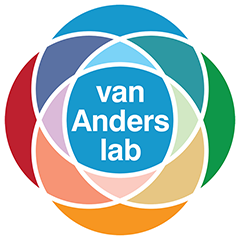Current Courses
Dr. van Anders will be teaching Psyc 987 "Feminist and Queer Psychology and Neuroscience" this fall!
Students in the Lab for Research Credit
Generally, Dr. van Anders work with students who have taken a class of mine or have volunteered in the lab. Students interested in working on independent research courses for credit should contact Dr. van Anders first with a query email. After making contact and if you are not already in the lab , click on the 'join the lab' tab above for more info on how to apply.
Reference Letters
Dr. van Anders will be happy to write you reference letters given that you have been in Dr. van Anders' lab and/or class and your performance has been strong. Consider asking any potential referee (including Dr. van Anders) whether the referee can provide you with a strong reference. Remember: the reference letter will relate to many aspects of your involvement, including your class participation, group work, writing abilities, etc.
Please provide at least two weeks' notice, unless an emergency or very special situation arises. Once Dr. van Anders has agreed to write a reference letter for you, have the following prepared in one PDF document or folder:
- information about the reference letters (e.g. form to fill out? Online? Hard copy?); if there are links that will be sent to me, please try to send them close together so Dr. van Anders can submit all your letters at one time;
- the deadline(s);
- a list of letters you need and information about the programs (e.g. what are you applying to?);
- what you would like me to focus on, if relevant (it might be general, but sometimes people want a specific focus on participation, writing abilities, etc.)
- your CV/resume;
- your university transcripts (unofficial copies are fine) with relevant courses and/or courses with me highlighted;
- if you were in a course with Dr. van Anders, include an example of your work with instructor comments on it;
- Please email the materials to Dr. van Anders in one PDF.
